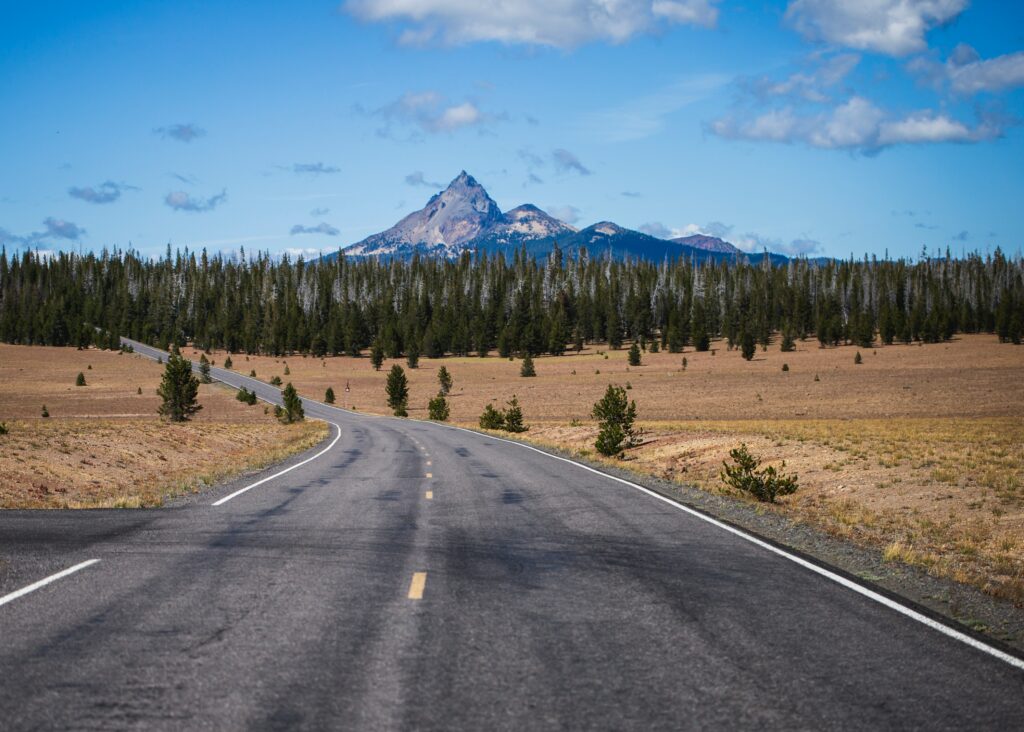The new normal: Lost in the wastes of time
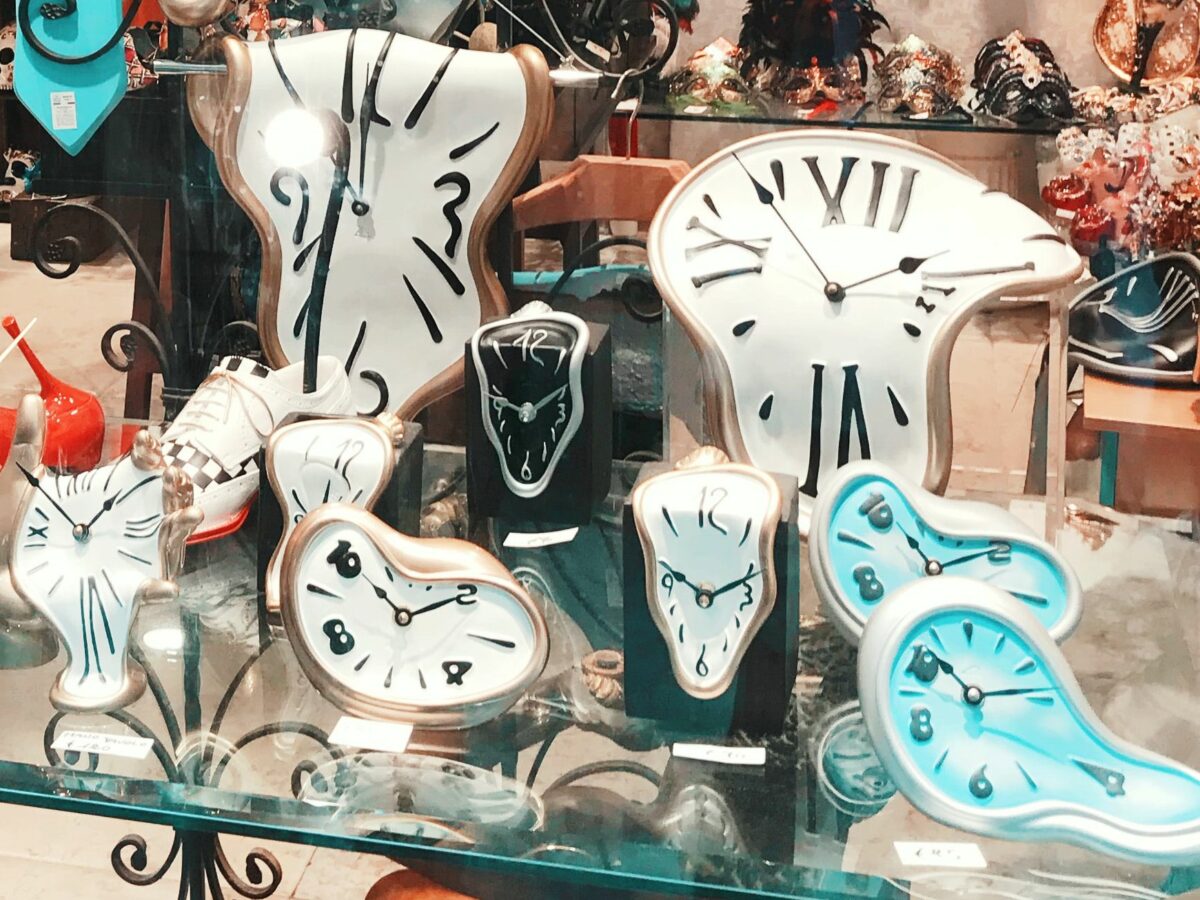
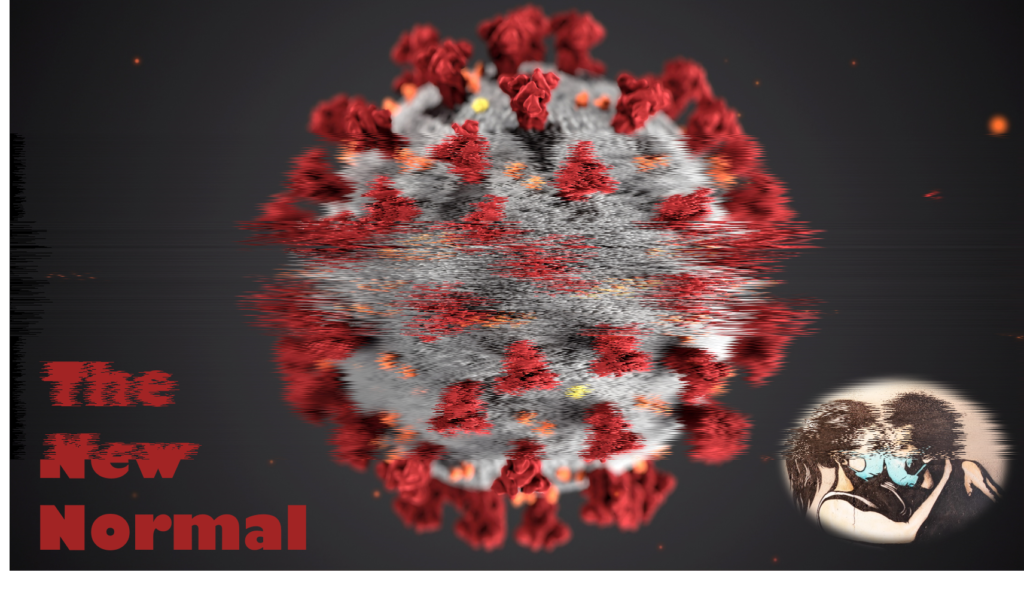
It was the beginning of March. The corona virus was wreaking havoc abroad, but here it seemed to be something only over-zealous HR policymakers were worrying about. Then, on the twelfth, we received the shock announcement that we would have to work from home until the end of the month. Three days later, the schools were closed for three weeks. Everyone I knew was counting down the days until we could get back to normal. Three weeks seemed like a long time.
On the seventh of April, a bombshell hit. During his press conference, the Dutch prime minister used two new phrases, ‘the new normal’ and ‘the 1.5m society’. My jaw dropped as my heart froze – surely it was impossible that this situation could become permanent? I could not believe in ‘the new normal’. Five months on, I’ve been forced to accept that many things I would have found bizarre back then, now indeed seem to have become normal. This series of blog posts will look at various aspects of the ‘new normal’ as I experience it in the Netherlands. This post: time
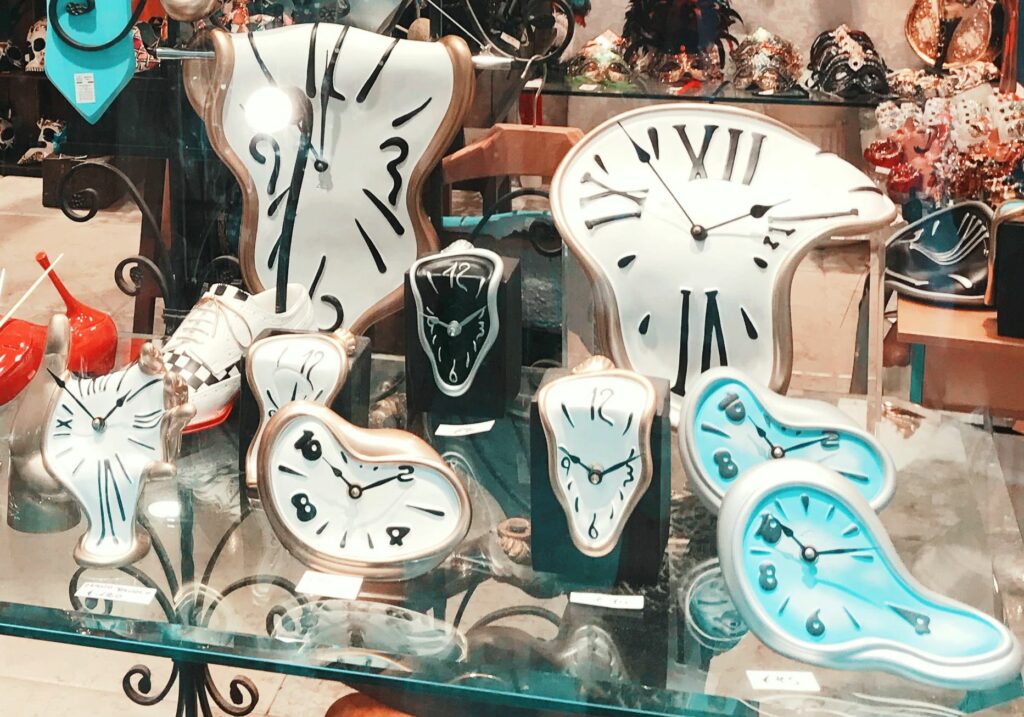
As a student in Germany, I once came across a window display of radio-controlled clocks. I was absolutely fascinated to see row upon row of timepieces, all changing time at precisely the same moment, as if they registered the heartbeat of a giant organism. When I returned home, it was with one of these clocks in my suitcase, and I have had one ever since. It is my mainstay, never running too fast or too slow, and switching automatically from summer to winter time, so I am never embarrassed by turning up an hour too early or too late. Now, in times of corona, my clock is still ticking away, measuring the hours, minutes and seconds, as reliable as ever. For the rest, however, I am lost and drifting in a weird wasteland of time.
Time itself is a strange thing. We see the signs of its passage all around us: the sun rises and sets, apples turn brown, children grow up. Yet time itself is invisible, you cannot sense it or grab hold of it. Measuring time gives us the comfortable feeling of getting a handle on this elusive will-o’-the-wisp, turning it into a solid quantity that can be parceled out in neat, defined slices. We talk of travelling through time, and time indeed seems like a landscape around us, mapped out into hours, days, months and years. We can trace the route we followed in the past, looking back on the landmarks we passed along the way. Ahead of us is mist, but clocks and calendars march on ahead of us, giving us beacons to light our way – next week, next month, next Christmas. These allow us to shape the formless future in our thoughts, planning what to do in the half-term holiday, what we will cook for Christmas, what games we will play at my daughter’s birthday party.
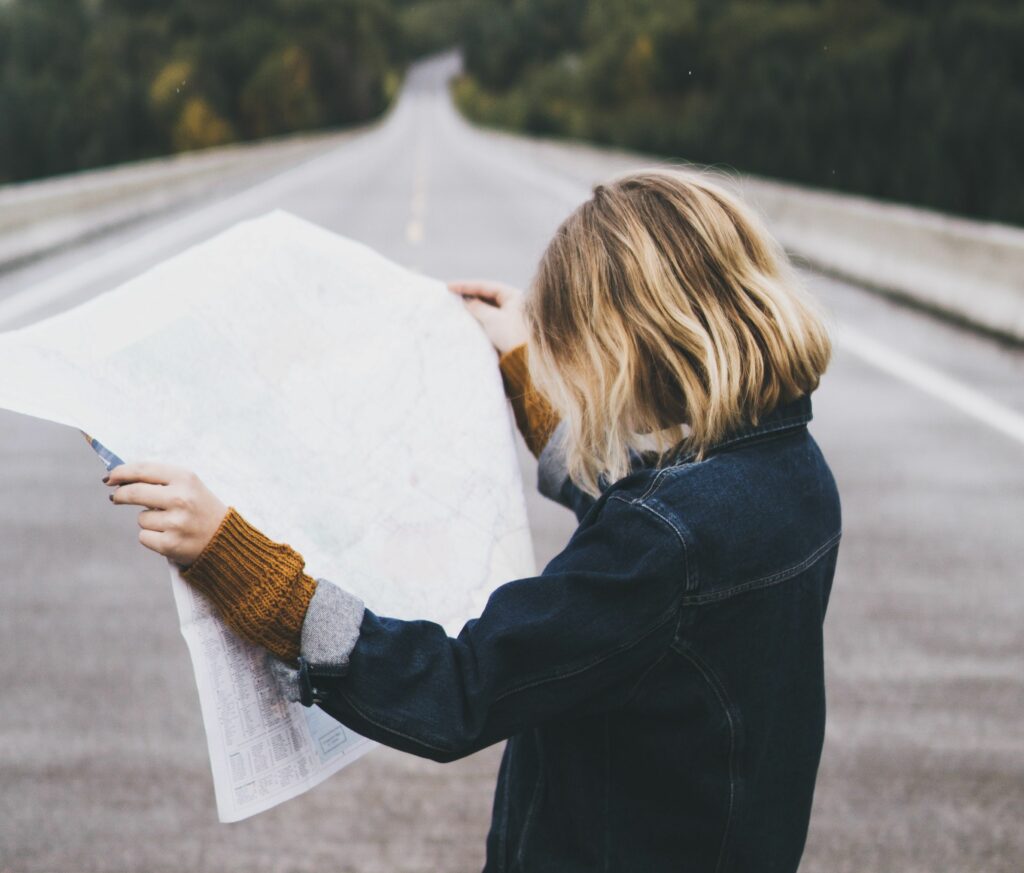
Corona has swept all of that away. The measurement of time remains, but it as if someone had erased the landscape, leaving only the bare, meaningless grid behind. Robbed of the events that give it shape, the recent past is a featureless desert. We can’t separate it out into ‘before your school trip’, ‘after Daddy got back from his conference’, ‘the week we visited Grandma for her birthday’. Days merge into one another, indistinguishable. In the future, the mist has descended completely. Visits to friends and family in the Netherlands are penciled in, subject to cancellation if rules change or anyone in the group gets symptoms. We can’t even consider booking a trip to our family in the UK until travel restrictions are lifted. Fixed dates such as birthdays and Christmas remain, but we can’t look forward to them as we don’t know what will be possible by that time. When my daughter asks if she can have a swimming party for her birthday, or comes up with an idea for treats to hand out to her classmates, I have to caution her that it’s too far ahead to give any definite answers. Will the swimming pool be open, will treats be permitted at school – will the school itself even be open? Nothing is to be depended on.
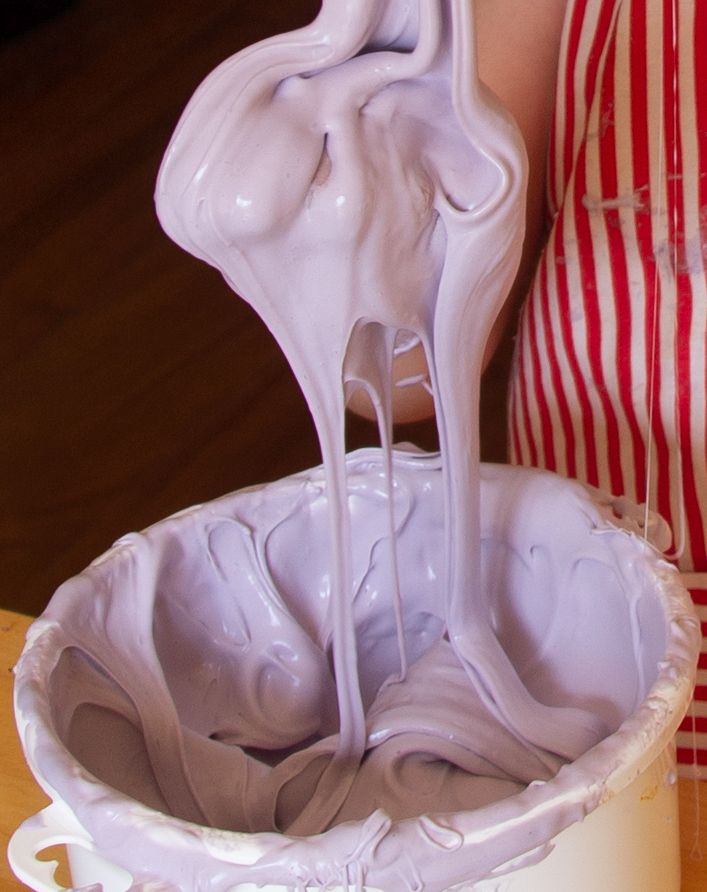
Time has lost its reliable, solid character. Instead, it has become more like the slime my daughters delight in making – at one moment contracting into a ball, then expanding out in long looping strands, either slipping through your fingers or sticking to them tenaciously. The days of the week hammer by at breakneck pace. A week used to last a long time, now Friday seems to follow directly after Monday, while weekends disappear in the blink of an eye. At the same time, corona has slowed life down to a crawl. After six months, my younger daughter is still working towards the swimming diploma she should have got in the spring, my team has still been unable to say goodbye to our colleague who left in April, I have only just received the residence permit I was granted before lockdown, and we are still (mostly) stuck at home. Time leaks away without us making progress. The paradoxical sensation of time simultaneously flying and dragging makes me feel dizzy, like someone with vertigo on a precipitous path, watching the ground swaying beneath their feet.
How do we deal with being lost in time? I think the only way to cope is in the same way we would if we were lost in the wilderness. Accept that, for the time being, we don’t know where we are going. Focus our attention, instead, on dealing with the immediate obstacles on our path. Make our own landmarks to avoid the feeling that we are going round in circles. Sing songs around the campfire to keep our spirits up. All the while hoping to spot signs that we have found our way back to familiar surroundings. That the countryside will open up in front of us, and we can once more look ahead to our goal on the horizon.
